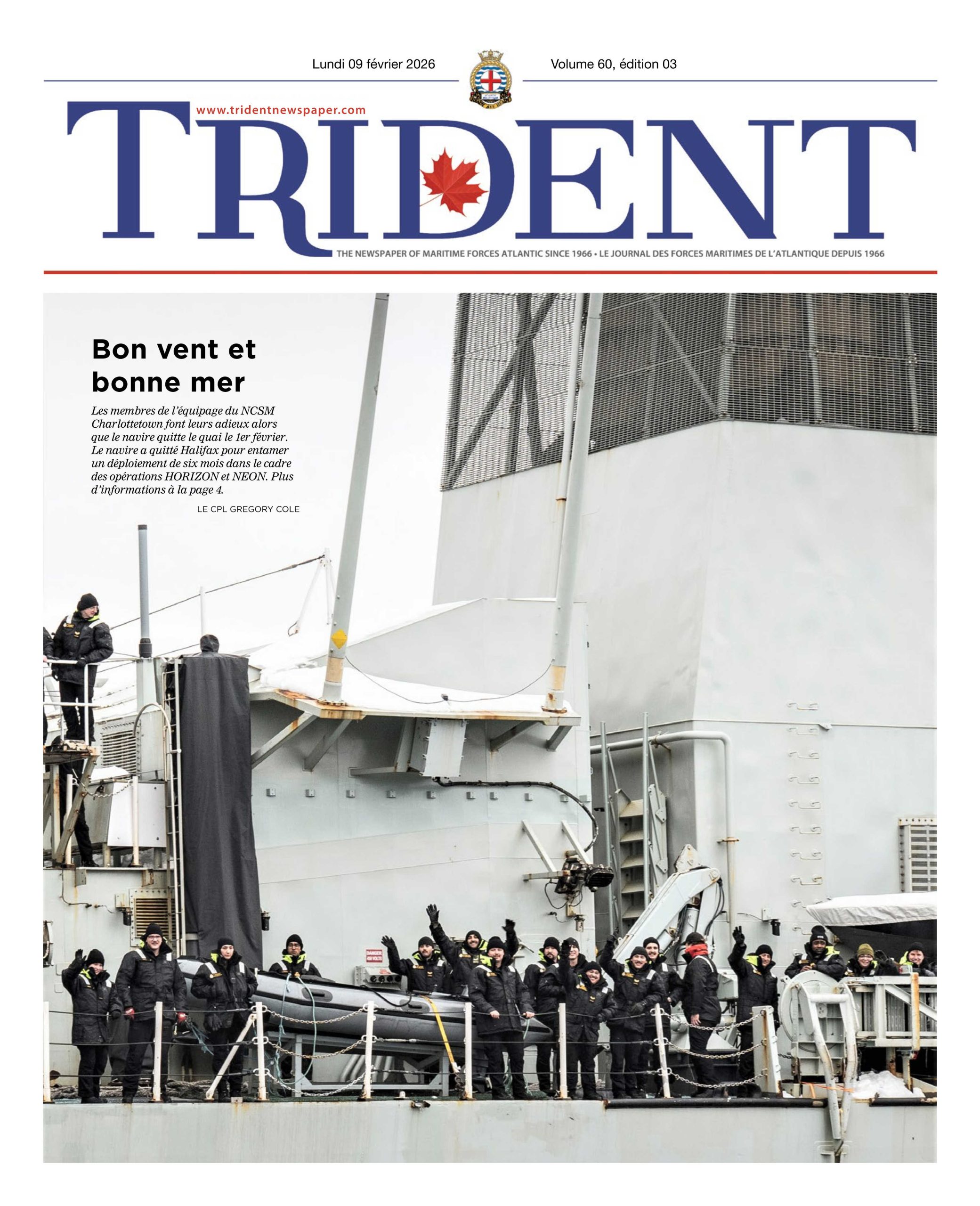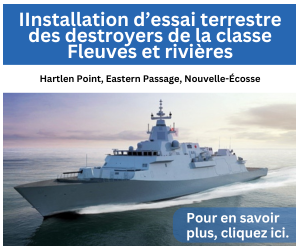
Photo: RCN
RCN concludes participation in CUTLASS EXPRESS 2018
By Lt(N) Linda Coleman,
Affaires publiques des FMAR(A)
It wasn’t a routine international tasking for four Royal Canadian Navy (RCN) sailors from MARLANT.
Dressed in desert combats, LCdr Paul Smith, CPO2 Dale Yerardi, Lt(N) Ted Marr and I participated in CUTLASS EXPRESS 2018 (CE18), a U.S. Naval Forces Africa-led engagement designed to assist in improving maritime law enforcement capacity and promote national and regional security in Eastern Africa. Leaving Halifax in late January, the sailors travelled halfway around the world to Southeast Africa with LCdr Smith and I arriving in Maputo, Mozambique, and CPO2 Yerardi and Lt(N) Marr arriving in Dar es Salaam, Tanzania.
LCdr Smith, senior RCN assessor for CE18, was the Task Force Commander during HMC Ships Summerside et Moncton’s deployment to West Africa last year. Their mission was to foster relationships and maritime security capacity building in the Gulf of Guinea region, as well as participate in Exercise OBANGAME EXPRESS.
“I’m honoured to be back in Africa with the RCN, continuing the great work we started last year in West Africa,” said LCdr Smith.
The RCN’s contribution to CE18 this year included strategic engagements with Mozambique and Tanzania to promote maritime security capacity building at the Tanzania and Mozambique Maritime Operations Centres (MOC). Sent as advisors, the RCN members provided support and mentorship on maritime security awareness, passing on Canadian expertise in this field. The aim was to encourage engagement and cooperation, and to inform their MOCs of new ways they can apply modern maritime security concepts. The sessions ran from January 31 to February 8, and briefings from the RCN included topics such as Law of the Sea, the RCN’s role in search and rescue, and boarding operations.
“During the capacity building sessions, we listened to the local military and civilian operators in order to understand how they run their maritime operations centres,” LCdr Smith said.
“This allowed us to gain an appreciation as to how they currently operate, listen to what they need or want help with, and offer assistance on how they can improve. We’re here to listen and provide assistance.”
In Tanzania, the participants represented all the major players for maritime security including the Tanzanian People’s Defence Force, the Tanzanian Maritime Police, the International Maritime Organization, the Tanzanian Maritime Coordination Centre and the Dar es Salaam harbour authority. In Mozambique, the participants included members of the Mozambique Navy and the National Maritime Authority of Mozambique (INAMAR).
The capacity building sessions provided an opportunity for the local maritime organizations to come together and engage. The sharing of information between the organizations is a challenge that they hope to overcome one day.
“The sessions were a huge success,” said CPO2 Yerardi. He described how dialogue didn’t come easy at first between the different organizations, but that quickly changed after the first day.
“We decided to take a person from the Fisheries Department and team that person up with the Naval Police, for example. Then we had one of them explain how the other would benefit from information sharing, and vice versa. We did this for a whole class of over 40, and it was great. It got people talking to one another, and it turned into a great networking tool. I believe we helped knock down some barriers concerning information sharing amongst the different departments. We also listened to their concerns and offered advice where we could.”
When asked about the value of CE18 for local maritime operators, Sara Nhacuongue, the Emergency Response Coordinator at INAMAR, said that participating is beneficial.
“This experience helps us improve our procedures in case of emergency and organize the way we work as a team with the other organizations to respond more quickly and effectively.”
RCN participation in CE18 also offered an opportunity for the sailors to learn about Tanzanian and Mozambique culture. During lunch hour, RCN members and the local participants exchanged stories, sharing examples of what life is like in our different countries. LCdr Smith and I also visited and toured the historic community of Mafalala in Maputo, Mozambique, and donated school supplies to the local elementary school.
“It was great to engage with the local community and learn about their culture and heritage. Maputo is a city rich in maritime history, and understanding this background provides us with a better appreciation of how they operate today, helping us improve our role as advisors during CUTLASS EXPRESS,” LCdr Smith said.
On February 8, CE18 concluded and the participants were provided with certificates of completion. In attendance were the High Commissioner of Canada to Tanzania, Ian Myles, the High Commissioner of Canada to Mozambique, Antoine Chevrier, representatives from the U.S. Embassy, and local maritime organizations.U.S. Africa Command sponsors the EXPRESS series of engagements, which includes CUTLASS, OBANGAME and PHOENIX. HMC Ships Kingston et Summerside, a detachment of personnel from the Maritime Tactical Operations Group, and a Maritime Operations Centre mentorship team will participate in OBANGAME EXPRESS in March 2018.






